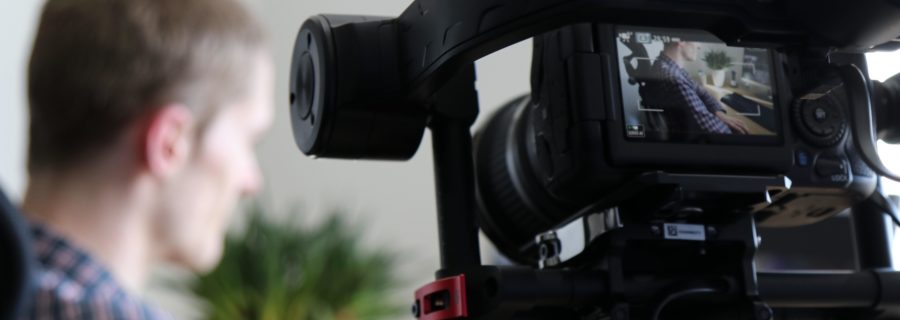This is a guest post from Journeyman
(Member since 2008)
The word “journeyman” has roots deep in medieval history and has come to mean “a skilled worker who practices some trade or handicraft.” It’s an apt name for Dartmouth’s Journeyman Films, which uses the magic of today’s technology to craft stories for its clients.
Mathew Welsh started the company in late 2007 after perfecting his craft in a number of ways.
“It’s never a straight-line story,” he admits. “Along the way, there are twists and turns.”
His story began in Alberta, then in Ontario and France before setting down roots here in Nova Scotia. He gained his journeyman’s experience in the documentary film world, working as a producer and director for the Canadian Broadcasting Corporation.
“Those years prepared me,” Welsh says. “I enjoyed the documentary work and it showed me that I wanted to use a filmmaker’s eye to make the most of a person’s story.”
When you’re making a film on your own, Welsh says you need to wear many hats simultaneously: coming up with the idea, finding the financing, producing and editing the content and pitching it to an audience so it doesn’t just languish on the shelf. He says he prefers being a team player, so he formed Journeyman Films and built a strong team to share in his dreams — and the workload.
Welsh says Journeyman tells the stories of its clients in a way that “makes them memorable” — creating an emotional bond with the audience.
“When you look at corporate videos that have been produced through the years, lots of them are pretty boring,” he says. “That’s why we use a filmmaker’s eye when we’re producing content. Using the craft of storytelling helps make the production more effective.”
It’s this creative lens that’s helped the company stand out in a world where anyone with a smartphone can produce video — for better or for worse — and post it on any number of platforms for everyone to see.
“Video online has exploded, with more and more platforms being added every day,” Welsh says. “In the next year, 80 per cent of the total information that is online will be in the form of video. It’s a crowded, noisy space.”
This crowding is becoming problematic, like the recent incident where video footage of actress Jennifer Lawrence was manipulated so it appeared she was saying something she hadn’t. Welsh says that’s just one small instance of “fake news” that’s cropping up everywhere. With virtual reality, augmented reality and other forms of manipulation becoming more common, he believes we’ll see many more incidents like this.
When it comes to the content Journeyman produces, Welsh says everything starts with putting words on a page. Depending on the client, it could be a full script or simply a storyboard with a few words to describe the images that will be shot.
He compares the process to a sandwich: the script or storyboard is one slice of bread, the post-production magic is the other slice of bread and the actual video is the filling in between. Lately, Welsh says the company has been putting a lot of emphasis into that first slice.
“We may be producing a piece that’s 60 seconds without any words. But even if there aren’t any words in the film, words have gone into creating that video beforehand,” he says. “Those words are used to connect with the audience, to build empathy, to take them on a journey or give them a different point of view.”
While Journeyman Films’ website lists a large number of local companies as clients, Welsh says its two biggest clients are actually in Ontario and British Columbia.
“We see ourselves continuing to grow in the next 5-8 years,” he says. “I see a studio presence in Toronto or out west, either in Alberta or British Columbia. Those locations are closer to the markets and talent and access to talent is essential.”
Journeyman Films currently has 12 employees working out of its Dartmouth office. Welsh says he envisions the team growing to 50 over the next few years, but they’ll be treading carefully.
“Growth is never a straight line,” Welsh says. “Sometimes you have to step back, evaluate what is happening and then move on. You always have to keep learning.”
< Back to Articles | Topics: Member Profile

